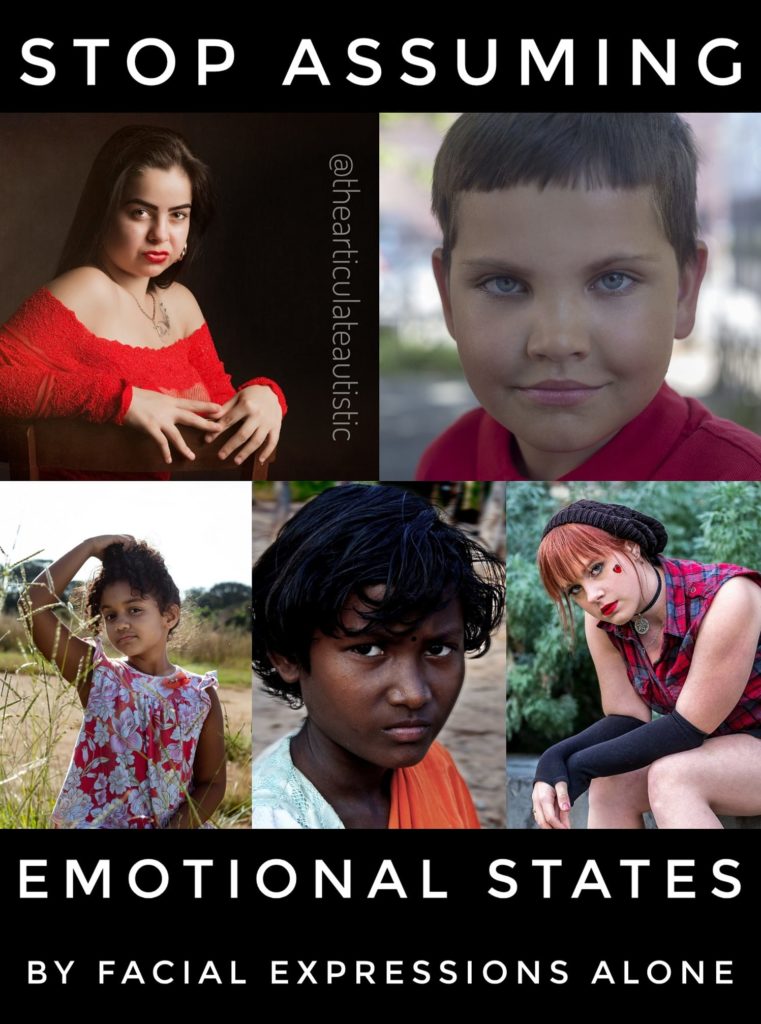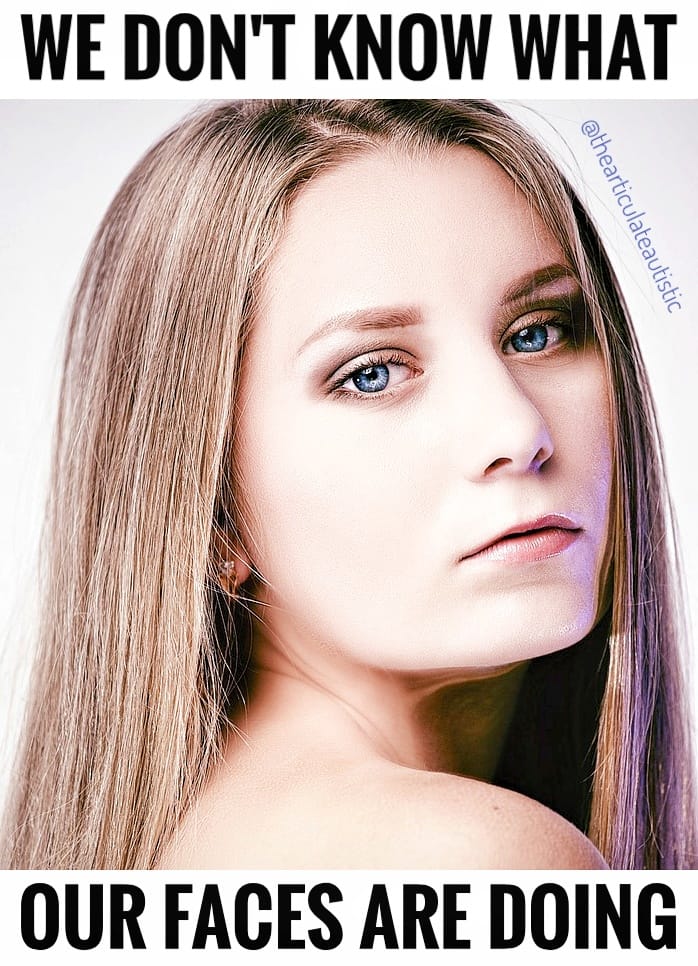Why You Shouldn’t Assume the Emotional State of an Autistic Person By Their Facial Expression Alone

A number of people commented that one of the questions they have difficulty getting their autistic loved ones to answer are direct questions about emotional states, and that lead me to want to dive deeper and clear some things up.
A few questions I saw were:
“Why are you mad?”
“Why are you upset?”
Also, I didn’t see these, but other examples would be:
“Why are you so grumpy?”
“Why do you always have a sour puss face?” (God, I hope nobody still says this.)
“What’s YOUR problem?”
This causes issues for two reasons when aimed at autistic people:
1) The emotional state of the person is assumed and responded to.
2) You’re asking an ambiguous question.
Like I’ve mentioned in previous posts, us autistic people often have no idea what our faces are doing.
We could be perfectly happy and look like we want to slap someone, or we could be sad but wearing a smile.
It’s just our neurology. I often refer to it as “my brain doesn’t tell my face what I’m feeling”.
That said, if we have what appears to be an angry, disgusted, annoyed, etc., look on our face, and somebody asks us why we are feeling said emotion, the first thing we feel is confused.
First of all, who are you, and where did you come from? (I’m half-joking, but we often may not have even known you were there until you spoke and startled us.) Second, what do you mean?
Instead of assuming the emotional state based on facial expressions, try making observing statements and asking if you are correct.
This will serve two important purposes:
1) You will be describing how our face looks to you, and since we often don’t know, this is very valuable information.
2) You are observing instead of accusing, which makes us feel safer.
So, for example, “I see that your eyebrows are scrunched up, and your eyes are narrowed. I think that means you’re upset about something. Is that true?”
You might get a response of, “No. I was just concentrating on something.”
Another example, “I see that your upper lip is curled, and you’re looking up at me with a sideways glance. I think that means you’re disgusted. Am I right, or are you feeling something else?”
One more, “I see that you’re smiling, but your body is stiff and you’re tapping your foot. I think that means you feel anxious. Is that true?”
Asking and having a dialogue is so much more effective than assuming and responding, especially when it comes to talking to autistic folks.
If I’m not mistaken, non-autistic people feel that having the emotions on their face read and responded to makes them feel understood and valued.
For many autistic people, the exact opposite is true, and we often feel attacked.
Follow me on Instagram.
Want downloadable, PDF-format copies of these blog posts to print and use with your loved ones or small class? Click here to become a Patreon supporter!






1 Response
[…] Why You Shouldn’t Assume the Emotional State of an Autistic Person By Their Facial Expression … […]